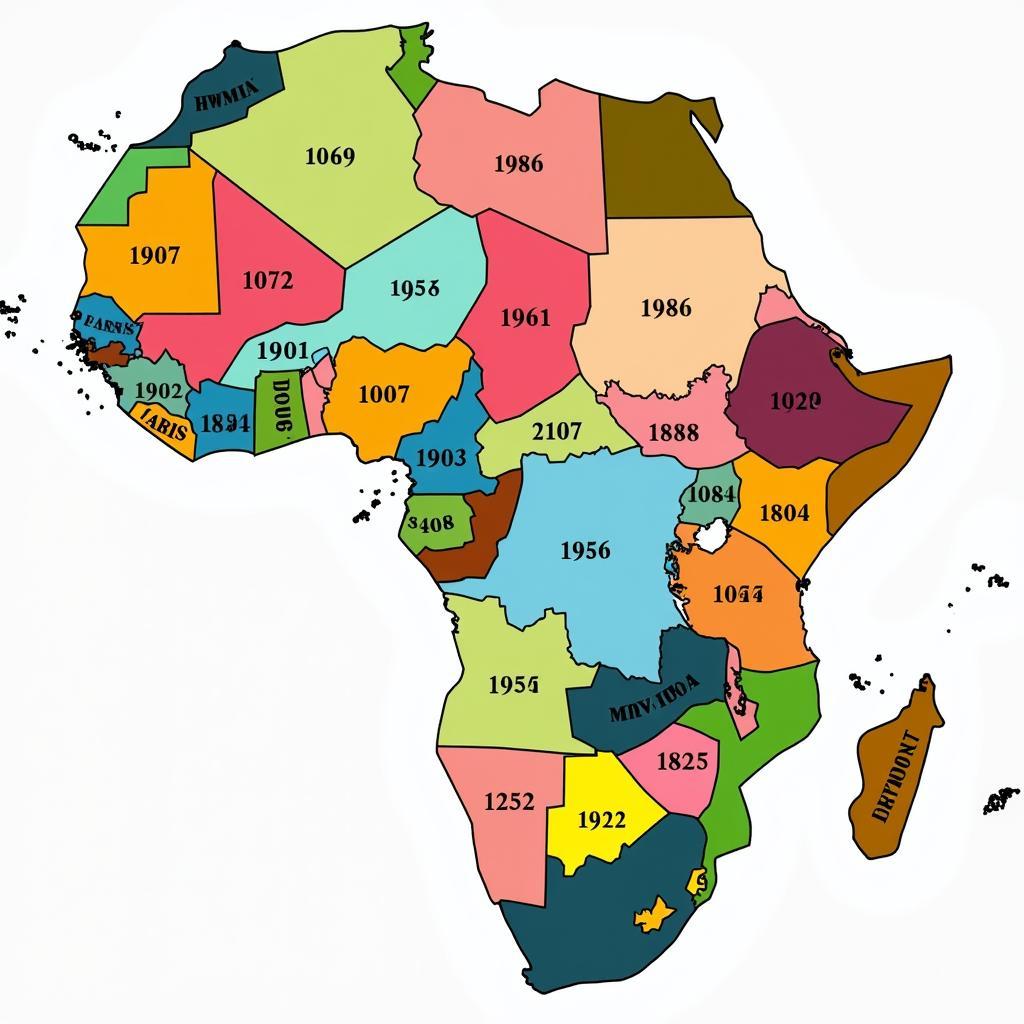Understanding the African Date Format
Understanding the African Date Format can be more nuanced than one might initially think. While the internationally recognized ISO 8601 format (YYYY-MM-DD) is gaining traction, diverse date formats are used across the continent, influenced by colonial history and local practices. This often leads to confusion, particularly in international communication and data processing. Learning about these variations is crucial for anyone interacting with African businesses, governments, or individuals.
Navigating the Diversity of Date Formats in Africa
Africa’s 54 countries boast a rich tapestry of cultures and languages, naturally extending to date representations. While many countries have adopted the YYYY-MM-DD format, variations exist, especially in less formal contexts. For example, the DD/MM/YYYY format (day/month/year) is common in former British colonies like Kenya and Nigeria, reflecting the British influence. Similarly, the MM/DD/YYYY format (month/day/year) might be encountered in areas with historical ties to the United States.
 African Date Formats Map Across Different Countries
African Date Formats Map Across Different Countries
Furthermore, even within a single country, variations may arise due to local dialects or traditional practices. This is particularly evident in rural areas where oral traditions and local calendars may hold sway. This complexity underscores the importance of context and clarification when dealing with dates in an African context.
Why is Understanding the African Date Format Important?
Accurate date interpretation is crucial for numerous reasons. In business, misinterpreting dates can lead to missed deadlines, shipment delays, and financial inaccuracies. In healthcare, correct date recording is paramount for patient records and treatment schedules. Even in personal communication, misunderstanding dates can lead to missed appointments and social faux pas.
Consider the implications of confusing 10/01/2024. In a DD/MM/YYYY format, this represents the 10th of January, while in a MM/DD/YYYY format, it signifies October 1st. This seemingly simple difference can have significant repercussions.
What are the Common Challenges?
One of the primary challenges is the lack of a single, universally adopted format across the continent. This necessitates careful attention to context and often requires direct confirmation to avoid ambiguity.
How to Avoid Date Confusion?
Always clarify the date format being used, especially in written communication. Utilizing the ISO 8601 format (YYYY-MM-DD) is recommended for international exchanges. When in doubt, ask for clarification to ensure accurate understanding. You may even find information on the African Journal of Dentistry, showcasing how precise data, including dates, is crucial across various disciplines.
Best Practices for Handling Dates in Africa
- Always clarify: Never assume the date format. Always confirm, especially in official documents or important communications.
- Use ISO 8601: Encourage the use of the YYYY-MM-DD format for international correspondence.
- Be mindful of context: Consider the country and cultural context. Be aware that variations might exist even within a single nation.
- Include the full year: Avoid using abbreviated years (e.g., 23 instead of 2023) to prevent ambiguity.
 Best Practices for Handling African Date Formats
Best Practices for Handling African Date Formats
In conclusion, understanding the African date format is essential for effective communication and successful interactions across the continent. While variations exist, adhering to best practices, clarifying formats, and promoting the use of the international standard can significantly minimize confusion and ensure accuracy. Remembering these key points regarding the African date format will greatly enhance your interactions across the diverse landscape of this vibrant continent. You can find more information on African cultural events, such as the African Carnival Edmonton.
FAQ
- What is the most common date format in Africa? While several formats are used, the DD/MM/YYYY and YYYY-MM-DD formats are frequently encountered.
- Why are there different date formats in Africa? Historical ties to different colonial powers and local customs have influenced date representations.
- What is the ISO 8601 date format? It’s the international standard date format (YYYY-MM-DD), promoting clarity and reducing ambiguity.
- How can I avoid date confusion in Africa? Always clarify the format, preferably using ISO 8601 for international communications.
- Is there a single official date format for all African countries? No, there isn’t a single, universally mandated format across all nations.
- What should I do if I’m unsure about a date? Ask for clarification to ensure accurate understanding.
- Where can I find more information about African cultural events? You might find relevant information on events like the African Carnival Edmonton.
Are you interested in learning more about African transportation or wildlife? You can check the African Grouse ship position or look up the African Express Airways Nairobi Office.
Khi cần hỗ trợ hãy liên hệ Số Điện Thoại: +255768904061, Email: kaka.mag@gmail.com Hoặc đến địa chỉ: Mbarali DC Mawindi, Kangaga, Tanzania. Chúng tôi có đội ngũ chăm sóc khách hàng 24/7.

